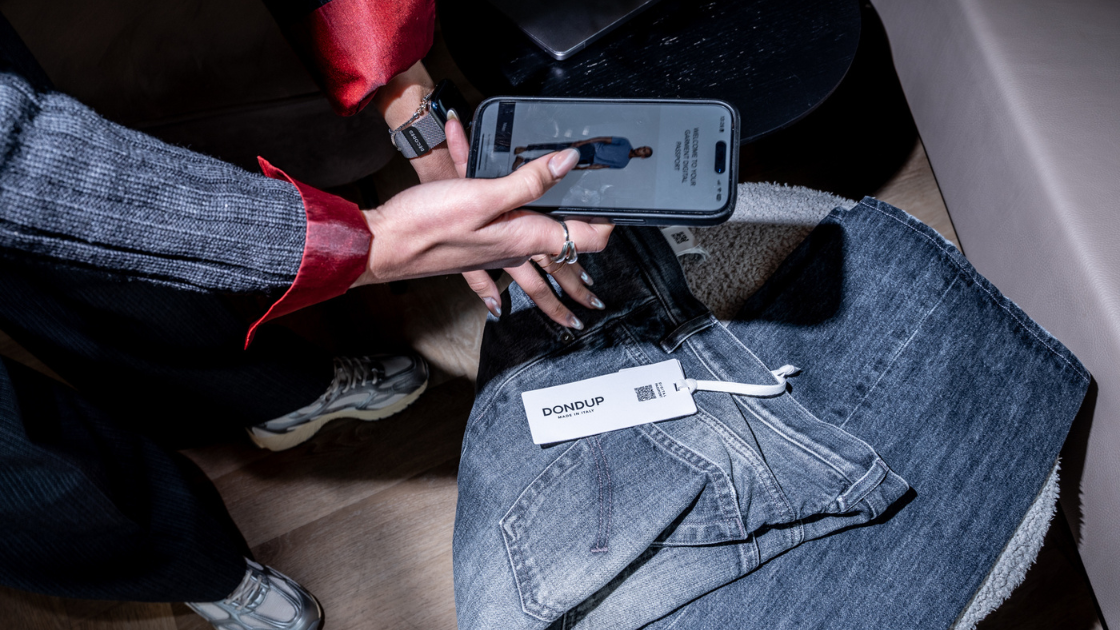Welcome to the age of supply chain transparency, where the intricacies of global commerce are laid bare for all to see. In an era defined by interconnectedness and consumer empowerment, understanding the journey of products from conception to consumption has never been more critical.
At the heart of this transparency lies the concept of traceability: guiding businesses towards greater accountability, efficiency, and trust.
What is traceability and its role in shaping the future of supply chain management?
The Definition of Supply Chain Traceability
Defining traceability is akin to deciphering the DNA of modern supply chains, where every link, node, and transaction holds significance.
At its core, traceability is the ability to track the movement and transformation of products, components, and materials throughout the supply chain ecosystem. It's the digital breadcrumb trail that enables businesses to trace the origin, production processes, and distribution channels of goods with precision and clarity.
Traceability extends far beyond mere record-keeping; it embodies a mindset of accountability, transparency, and responsibility across the entire supply chain spectrum.
In essence, traceability serves as the foundation upon which supply chain transparency is built. It empowers businesses to answer fundamental questions:
- Where did this product come from?
- How was it made?
- Who were the suppliers and manufacturers involved?
By capturing and documenting critical data points at each stage of the supply chain journey, traceability transforms raw information into actionable insights. From batch numbers and expiration dates to certifications and compliance documents, traceability encapsulates the life story of a product, offering stakeholders a comprehensive view of its journey from inception to consumption.
Additionally, the scope of traceability transcends traditional boundaries, encompassing not only physical goods but also intangible attributes such as sustainability, ethical sourcing, and social responsibility. In an era marked by heightened consumer awareness and regulatory scrutiny, traceability emerges as a powerful tool for fostering trust and loyalty among customers while mitigating risks and liabilities for businesses.
As we go deeper into the nuances of traceability, we must recognise the enormous potential to revolutionize the way we produce, distribute, and consume goods in an increasingly interconnected world.
Relationship between Traceability and Visibility
The relationship between traceability and visibility is fundamental: the concepts are two sides of the same coin.
While traceability focuses on the ability to track and trace the movement of products, components, and materials throughout the supply chain, visibility provides stakeholders with real-time insights into the status, location, and performance of these assets.
At its core, traceability lays the groundwork for visibility by establishing a robust framework for capturing and documenting critical data points at each stage of the supply chain journey. By leveraging technologies such as QR codes, barcodes, RFID tags, and blockchain-enabled platforms, companies can create digital footprints that enable the seamless flow of information across disparate systems and processes.
Visibility, on the other hand, amplifies the impact of traceability by providing stakeholders with a holistic view of the supply chain landscape more or less in real time. Through the use of advanced analytics and cloud-based platforms, businesses can monitor key performance indicators, identify bottlenecks, and anticipate disruptions before they escalate. Visibility empowers stakeholders to make informed decisions with confidence and agility.
By integrating traceability and visibility into their supply chain operations, businesses can:
- mitigate the risks of counterfeiting, fraud, and product recalls
- ensure compliance with regulatory requirements and industry standards
- provide customers with visibility into the provenance of products, enhancing trust, loyalty, and brand reputation
The Future of Traceability in Fashion and Textile
First and foremost, emerging technologies such as blockchain, Internet of Things (IoT), and artificial intelligence (AI) are poised to revolutionize supply chain traceability. Blockchain, with its immutable ledger and decentralized architecture, holds the promise of creating tamper-proof records of transactions and movements across the supply chain. By leveraging blockchain-enabled platforms, businesses can enhance transparency, traceability, and trust while reducing the risks of fraud, counterfeiting, and supply chain disruptions.
Artificial intelligence and advanced analytics could also transform traceability from a reactive process to a proactive strategic asset. By analyzing vast batches of data generated by ransactions, and digital interactions, AI-powered traceability solutions can uncover hidden patterns, predict potential risks, and optimize supply chain performance in completely new ways.
Looking at the big picture: the future of supply chain traceability is characterized by a shift towards ecosystem-wide collaboration and interoperability. As supply chains become increasingly interconnected and interdependent, the need for seamless data exchange and integration across disparate systems and stakeholders becomes paramount. By embracing open standards, industry consortia, and collaborative platforms, industries - especially fashion and textile - can break down silos, foster trust, and drive innovation across the entire supply chain ecosystem.
Additionally, regulatory pressures and consumer expectations are expected to drive greater emphasis on sustainability, ethical sourcing, and social responsibility in supply chain traceability.
As consumers demand greater transparency and accountability from the brands they support, businesses will need to adopt more robust traceability practices that extend beyond traditional supply chain boundaries to encompass broader environmental, social, and governance considerations.
At Renoon, we recognise the challenges in adopting, implementing and successfully scaling supply chain transparency and traceability systems.
As we continuously build top-notch technologies that companies adopt, we are happy to answer any questions and receive any feedback. Want to learn more? Book a Demo.

.png)







.png)
.png)


.png)
.png)


.png)
.png)

.png)

.png)
.png)
.png)


.png)
.png)
.jpg)
.png)






.png)

.png)
.png)














.png)
.png)
.png)

.png)
.png)
.png)
.png)
.png)


.png)
